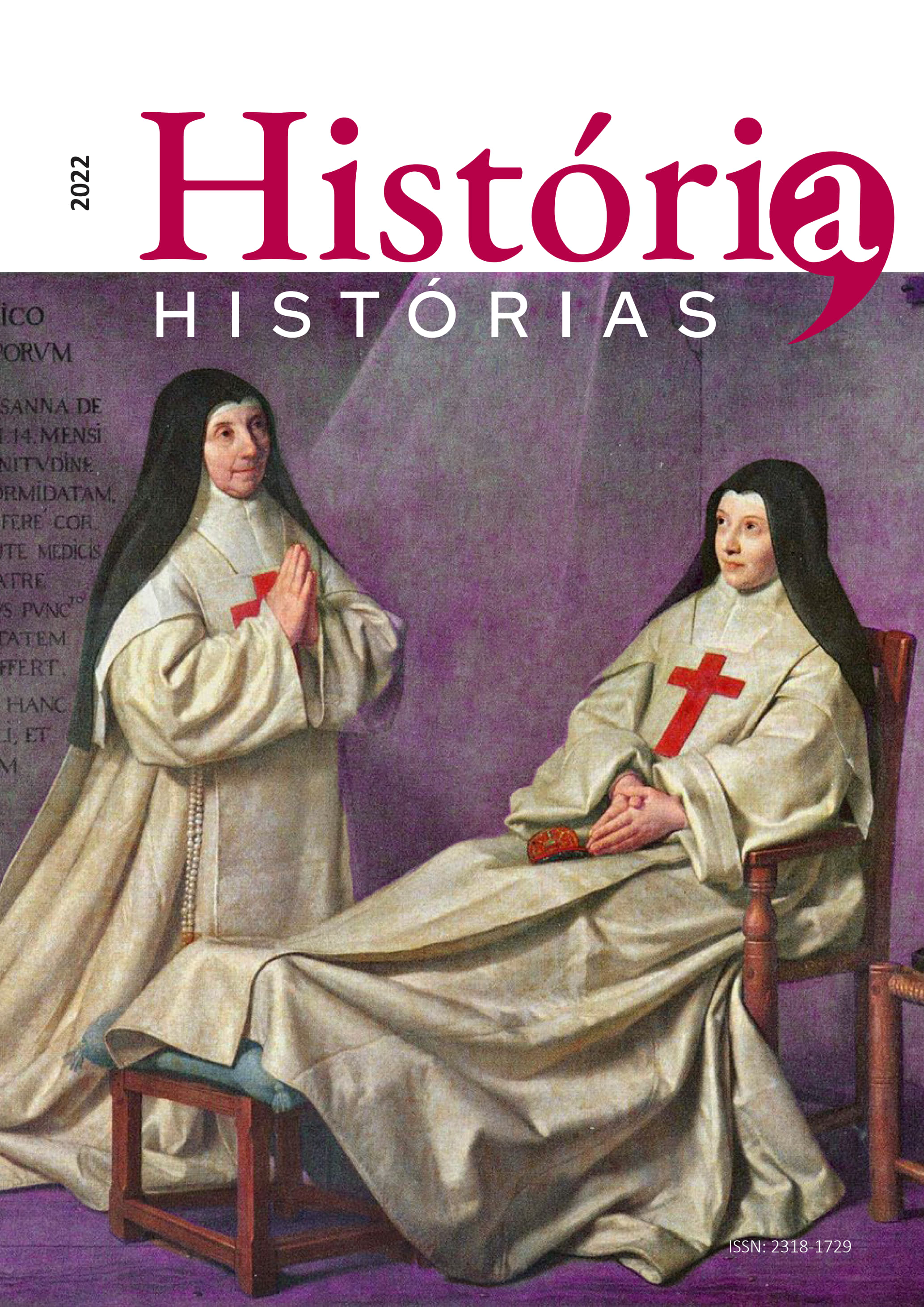The Superhumans (1929): Anarchism, Desire and Evolutionism in Han Ryner
DOI:
https://doi.org/10.26512/rhh.v10i19.40914Keywords:
Han Ryner, anarquismo individualista, Michel Savigny, teorias evolucionistasAbstract
The aim of this article is to analyze the concept of evolution present in the dystopian novel The Superhumans, published in 1929 and written by the French individualist anarchist Han Ryner. The novel presents a hybridized theory of evolution, which mixes neo-Lamarckian, catastrophic and leap theory elements with evolutionary conceptions of a mystical and prophetic nature, such as those proposed by Michel Savigny, in addition to dialoguing with the ethical conceptions, characteristic of individualist anarchism. The main characters in the narrative, that is, the Superelephants, the Superangels and the Immortals are, simultaneously, the result of the evolutionary process and the desire for ascension of beings. In the context of strengthening the interwar authoritarian thinking, the criticisms of the Superelephants’ desire for domination and the lyrical defense of Han Ryner’s individualist anarchist principles, such as pacifism and antimilitarism, in the Superangels’ chants, are highlighted.
Downloads
References
BOWLER, Peter J. Evolution: The History of an Idea. Berkeley:University of California Press, 2003.
BRAGA, Corin. Réversion des espèces et réduction à l’absurde: paraboles antiutopiques animalières. Caietele Echinox, vol. 31, 2016, pp. 287-300.
CLAYES, Gregory. Utopia: a história de uma ideia. São Paulo: SESC, 2013.
FRIGERIO, Vittorio. La Littérature de l’anarchisme: Anarchistes de lettres et lettrés face à l'anarchisme. Nouvelle édition [en ligne]. Grenoble: UGA Éditions, 2014.
LACHAPELLE, Sofie. Investigating the Supernatural: From Spiritism and Occultism to Psychical Research and Metapsychics in France. Baltimore: The Johns Hopkins University Press, 2011.
LAGALISSE, Erica. Occult Features of Anarchism. Oakland, CA.: PM Press, 2019.
MAGALHÃES, Célia. Os monstros e a questão racial na narrativa modernista brasileira. Belo Horizonte: Editora UFMG, 2003.
MERLINO, Alessandro. L’evoluzionismo nella letteratura italiana. Tricase: Edição do Autor, 2016.
MOURA, Maria Lacerda de. Han Ryner e o Amor Plural. São Paulo: Editora Unitas, 1933.
POINSOT, Maffeo. Encyclopaedia of Occult Science, v. VII, Noginski: Osteon Press, 2015.
RYNER, Han. Manual Filosófico do Individualista. Rio de Janeiro: Germinal, 1966.
RYNER, Han. Prostitués: Études Critiques. Paris: Société Parisienne d’Edition, 1904.
RYNER, Han. The Superhumans. Tarzana, CA: Black Coat Press: 2011.
SARGENT, Lyman Tower. What is a utopia? Morus, n. 2, p. 153-160, 2005.
SARGENT, Lyman Tower. Utopianism: A Very Short Introduction. New York: Oxford University Press, 2010.
SIMON-SAVIGNY, Edmond & Georges(ed). Vivre…Mourir…Renaitre: Resumé des theories hexagrammistes. Paris: Editions Chacornac Frères, 1942.
SOON, Richard D. Sex, Violence, and the Avant-garde: Anarchism in Interwar France. University Park: The Pennsylvania State University, 2010.
Downloads
Published
How to Cite
Issue
Section
License
Copyright (c) 2023 History, histories

This work is licensed under a Creative Commons Attribution-NonCommercial-NoDerivatives 4.0 International License.
Authors who submit papers with this journal agree to the following terms:
a) Authors retain copyright and grant the journal right of first publication with the work simultaneously licensed under a Creative Commons Attribution License that allows others to share the work with an acknowledgement of the work's authorship and initial publication in this journal.
b) Authors are able to enter into separate, additional contractual arrangements for the non-exclusive distribution of the journal's published version of the work (e.g., post it to an institutional repository or publish it in a book), with an acknowledgement of its initial publication in this journal.
c) Authors are permitted and encouraged to post their work online (e.g., in institutional repositories or on their website) prior to and during the submission process, as it can lead to productive exchanges, as well as earlier and greater citation of published work.




